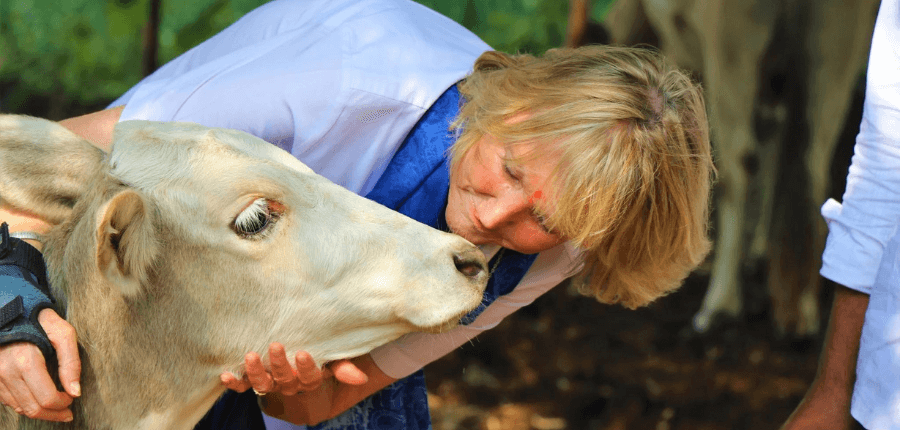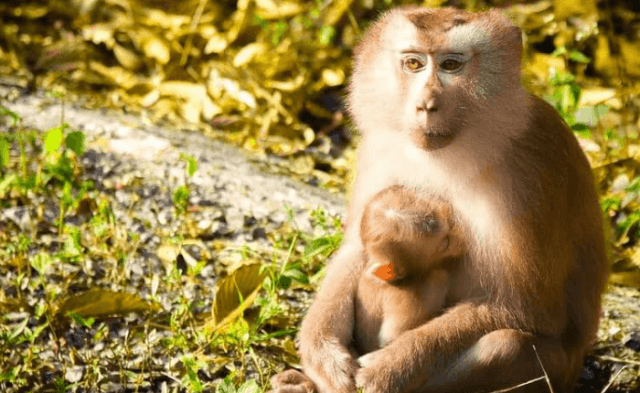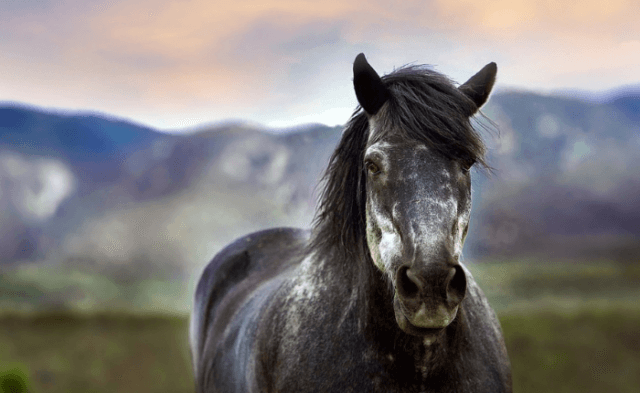When I was born in 1949, women wore fur stoles that incorporated the actual heads of foxes (with glass eyes that stared out from them). Monkeys and dogs were blasted into space, and pigeons were blasted to smithereens in shotgun contests for the sheer fun of it. A pregnancy test involved killing a rabbit, and tiger rugs and ivory could be found in many a home. Today, most people cringe at such things and wonder how they were ever considered acceptable.
Seventy-five years ago, the recognition of animals—except perhaps the family dog—as individuals with thoughts and feelings was still in the future. Today, we know that animals of all species are complex, sentient beings who communicate in dialects (crows in the south of France can’t understand what crows in the north of the country are talking about), care for their families, have varied interests, have jaw-dropping navigational talents, are able to construct homes with their beaks or their claws, can figure things out and are emotional beings like us. We are bombarded with new insights: Recently there’s been news that orangutans, like many birds, seek out specific plants to use as medicine, crushing the leaves and creating a poultice to treat a wound. Crows devise elaborate tools to gather food. Dolphins use distinct whistles to call each other by name. Elephant families respectfully mourn their lost loved ones.
Yet old mindsets are frustratingly slow to evolve. Many researchers today use state-of-the-art methodologies that can include organs-on-chips and fantastic high-speed computer simulators. People who still experiment on animals choose not to act on the continual flow of findings showing that animals can feel pain, fear and dread and wish for freedom from a laboratory cage. Some people still view animals as “others,” here to exploit in old ways, such as being force-fed to produce foie gras, shot to become a wall-mounted trophy or turned into trinkets for their amusement or pleasure. This supremacist conduct illustrates the belief that humans are more important than other species and can do as they wish with the rest. People for the Ethical Treatment of Animals, the organization I founded in 1980, works hard to upend that kind of thinking and help us all start to see that we are one component of a great orchestra of life, each member with a part to play.
Today, entire countries and states as well as countless municipalities have slammed the door on circus shows that involve animals. Almost no one would be caught dead in fur, and many designers have sworn off skins of wild animals, mohair, angora and even leather. Top designers are now creating fashion using innovative materials made from bamboo, mushrooms, seaweed or even recycled coffee grounds instead of using leather, wool, suede or silk. Tasty vegan foods that replicate everything from chicken to caviar are readily available, and plant milks and cheeses line grocery store shelves. PETA’s list of companies and brands that refuse to conduct or allow tests on animals has grown to thousands.

Retailers are banning hideous glue traps, greeting card companies have stopped selling cards featuring unwilling chimpanzee “models,” the tiger cub–petting industry has been decimated, synthetic frogs are replacing dead frogs in school dissection activities, Congress passed legislation removing the mandate for animal tests for new drugs and the list of progress goes on.
That said, Americans eat more than a million chickens an hour, each bird an individual who has as much personality as any dog and who would win our hearts if taken into our homes; millions of mice are poisoned to test chemicals; and pet shops still create a market for breathing-impaired dogs like Frenchies and pugs whose noses have been so shortened that they struggle for air.
Overseas, tourists still photograph themselves on the backs of camels who will come to an end so terrible it’s hard to think about and horses, donkeys and bullocks are forced to haul heavy loads until they drop. I hope and trust that 75 years from now we’ll have shaken off all those forms of cruelty and more.
PETA entities have more than 9 million members and supporters worldwide, but we need everyone to chip in on this journey toward kindness and understanding—to find a way to help. Every person who chooses to go vegan spares nearly 200 animals a year. PETA.org offers many ways to help animals. There are loads of ways to make a difference, big or small, and we provide free resources to help humans help the rest of the animal kingdom.
Celebrate Ingrid’s Birthday by Donating to PETA!




